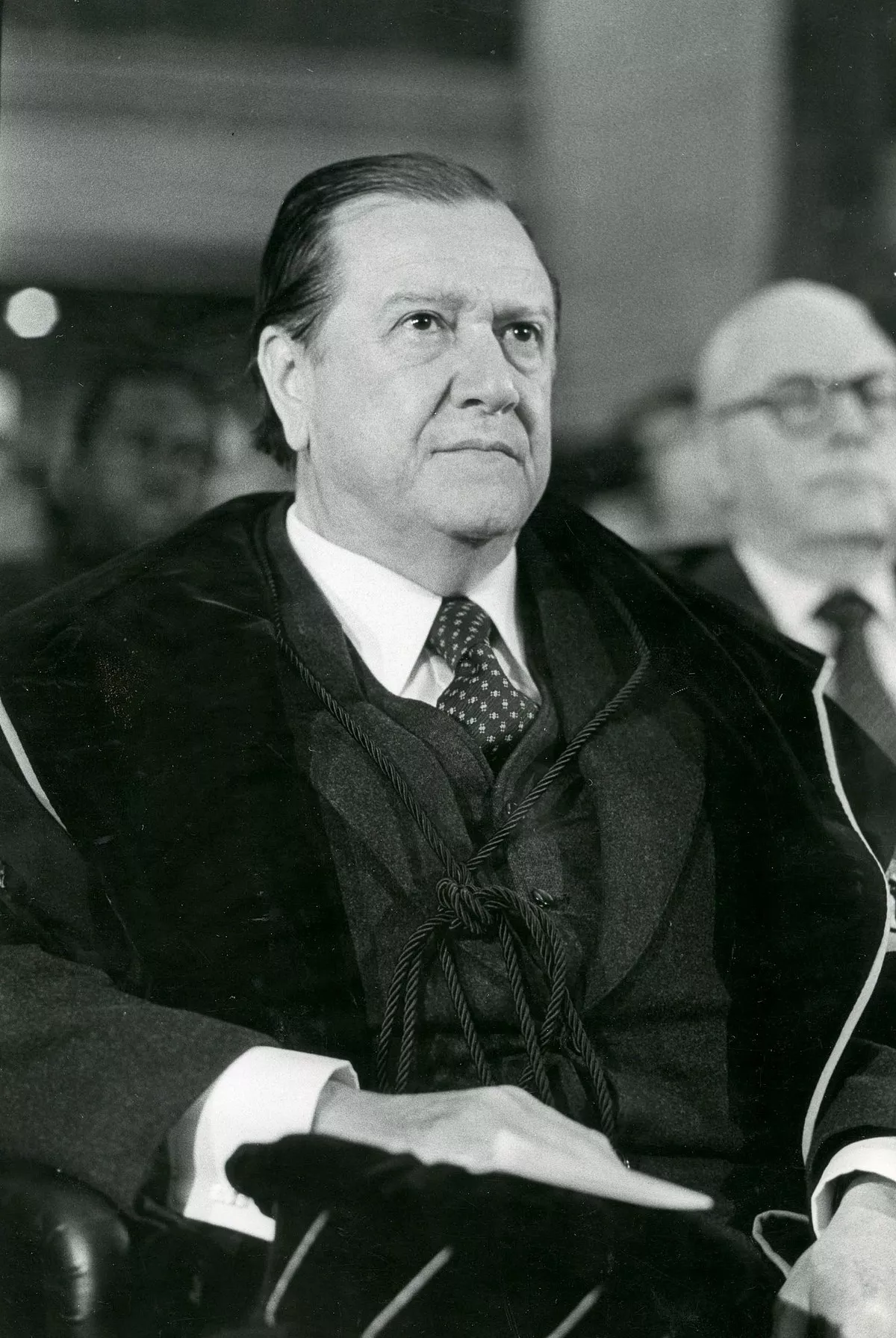 1.
1. Widely acknowledged as one of the founders of Venezuela's democratic system, one of the main architects of the 1961 Constitution, and a pioneer of the Christian Democratic movement in Latin America, Caldera was President during the second period of civilian democratic rule in a country beleaguered by a history of political violence and military caudillos.